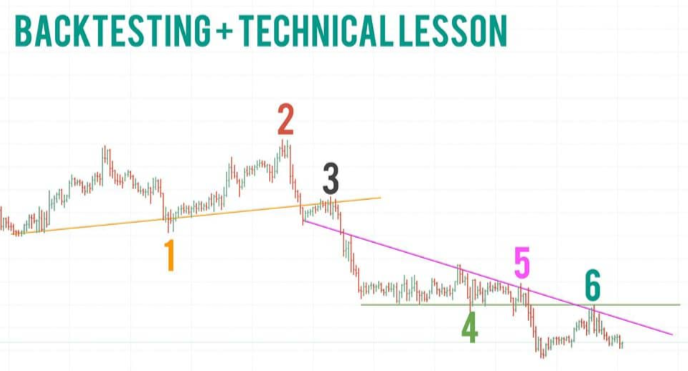A Deep Dive Into the Real Reasons
Why Do 80% of Forex Traders Lose Money? A Deep Dive Into the Real Reasons
Table of Contents
In the fast-paced, high-stakes world of Forex trading, it’s common to see the cautionary statistic that nearly 80% of retail traders lose money. For anyone entering this market, this statistic can be intimidating, and rightfully so—it highlights the importance of understanding why so many traders struggle to succeed. If you’re considering Forex trading, it’s essential to grasp these challenges fully and work on overcoming them with the right mindset, skills, and discipline. Let’s explore the main reasons behind the high loss rate among Forex traders.

1. Lack of Education and Unrealistic Expectations
One of the biggest reasons for Forex traders’ losses is a lack of education. Many traders enter the Forex market believing it’s a quick way to make money, often influenced by flashy ads and success stories. In reality, Forex is complex, and those who dive in without a solid foundation in trading principles, chart analysis, and market trends are at a disadvantage.
Unrealistic expectations, combined with poor education, can lead traders to take high-risk trades in the hope of big wins, often resulting in significant losses. Like any profession, becoming proficient in Forex trading requires time, study, and practice.
2. Poor Risk Management and Over-Leveraging
Forex markets are highly volatile, and managing risk is crucial. Many traders neglect risk management strategies like setting stop-loss orders or position sizing, which are essential for long-term success. Over-leveraging—using borrowed funds to increase trade size—is a common issue among new traders. While it can amplify profits, it can also magnify losses, especially when trades move in the opposite direction.
Learning to manage risk effectively requires a disciplined approach, including sticking to predetermined risk limits on each trade and resisting the urge to place overly large positions.
3. Emotional Trading and Lack of Discipline
A significant reason why traders lose money is due to emotional trading, driven by fear, greed, and impatience. Many traders experience panic when prices move against them, which often leads to impulsive decisions to close trades prematurely. Conversely, greed can cause traders to hold onto winning trades for too long, hoping for even larger profits, only to see the market turn against them.
Discipline in Forex trading is the backbone of successful trading. Sticking to a trading plan, following strategies, and keeping emotions in check are vital to avoiding costly mistakes.
4. Inconsistent Strategies and Lack of Backtesting
Consistency is key in Forex trading. Traders who frequently switch strategies based on short-term results often find themselves stuck in a cycle of losses. Effective trading strategies require proper backtesting—simulating past trades to understand how a strategy might perform over time.
Backtesting on platforms like TradingView can help traders see how a strategy performs across different market conditions. Committing to a well-tested strategy can be difficult, especially during temporary downturns, but it’s essential for long-term success.

5. Underestimating the Role of Market Analysis
Forex traders sometimes rely too heavily on technical indicators or signals without analyzing the broader economic factors affecting currency prices. News events, government policies, and economic data can drastically influence currency values. Successful traders stay informed about these events and use both technical and fundamental analysis to make informed decisions.
Understanding how these factors affect the Forex market and integrating them into a trading plan provides a significant advantage over traders who rely solely on chart patterns or trend lines.
6. Gambling Mindset and Lack of Patience
Many Forex traders adopt a gambling mindset, seeing each trade as a bet rather than a calculated risk. This mindset is especially damaging in Forex because the market’s volatility can lead to large losses in a short time. Trading is about carefully choosing high-probability trades rather than risking everything on a single outcome.

Patience is also essential, as successful trades don’t always materialize immediately. Developing a mindset focused on the long term can help traders avoid high-risk behaviors driven by a need for quick results.
7. Ignoring the Psychological Aspect of Trading
Finally, psychology plays a crucial role in Forex trading. Successful traders maintain a calm, rational mindset even during market volatility. Traders who ignore the mental side of trading often fall into patterns of impulsive decision-making, leading to repeated mistakes.
By dedicating time to developing mental resilience and self-discipline, traders can navigate the inevitable highs and lows of the market with a stable approach.
Turning the Odds in Your Favor
While the statistic that 80% of Forex traders lose money is sobering, it also highlights the importance of preparation and discipline. Forex trading can be profitable, but it requires patience, proper education, risk management, and a disciplined mindset. By understanding these challenges and working to overcome them, you can set yourself apart from the majority and increase your chances of success in the Forex market.
Remember, Forex trading isn’t about getting rich quickly; it’s about developing a long-term approach that balances risk with reward.
Check out my previous article explaining how to get started How to trade forex in Guyana Discover 7 steps . My recent article also gave a deep dive into other methods Discover Seamless Online Trading with Exness: Your Trusted Multi-Asset Broker
![]()




